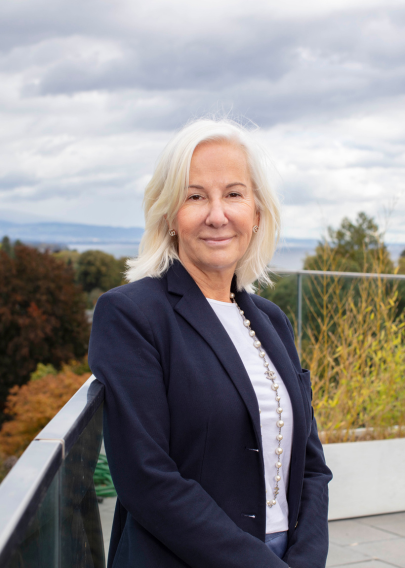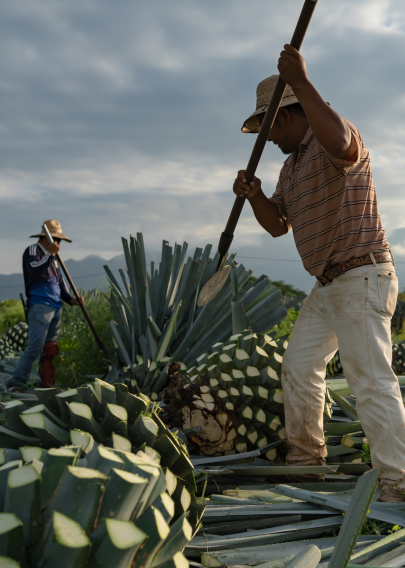When industry forecasters wrote their 2020 to 2021 trend reports, they couldn’t have predicted the grounded planes, the quarantine measures, and the slamming of collective brakes on the whole world’s holiday plans. While all industries have been impacted by the pandemic in different ways, the travel industry has arguably been one of the hardest hit. Yet, it offers the industry time to pause, reflect and reset, giving it the opportunity to re-emerge in a more sustainable way. While uncertainty is still looming on when the world will get back to ‘normal’, we’re questioning what the ‘new normal’ will look like.
While the economic downturn is going to be an inevitable hurdle, travelling less often could mean people will be prepared to spend more on quality experiences when they do. They’re likely to seek resorts with an abundance of space and prioritise companies that they trust to meet high standards of hygiene – all of which could see responsible luxury brands given a well-deserved boost. “In the short to mid-term, the experience in a luxury hotel will not be diminished at all,” says Brian Gore, VP of Brand, Marketing & Digital for The Set Hotels. “In fact I think the opposite will happen. A stay will become more personalised and attentive than ever.”
The Rise of the Conscious Consumer
Living through an event that has thrown global and local inequalities into such sharp relief, many of us are striving to become a better consumer. An Accenture survey highlighted that more than 3,000 people across 15 different countries found that the pandemic was already inspiring a change, with 68% reducing food waste and 54% shopping more sustainably. Travel habits are set to follow suit.
A study conducted in the UK found that Covid-19 and the impact of lockdowns have had a huge impact on attitudes towards travel, the tourism industry and its associated effect on the environment. Seeing nature recover during Covid-19 lockdowns has inspired many to become more eco-conscious when it comes to booking holidays. Indeed, consumers will start voting with their wallets and spend money on holidays that align with their inner values. It is predicted that forward-thinking businesses and travel destinations that intentionally respond to this behaviour shift will recover quicker and stronger.
“Our guests have always been keen to ensure that the footprint they leave behind when travelling is as small as possible, with sustainability an important part of the decision-making process when choosing a hotel,” says Gore from the Set Hotels. “I don’t believe this will change. If anything I think travellers will put more emphasis on [sustainability], as the fragility of the world around us is at the forefront of everyone’s minds.”
Low Carbon Travel
Due to the rise in eco-conscious travellers, it is plausible that the demand for low carbon travel will accelerate. Travellers may opt for greener modes of transport to get to their holiday destinations, one which avoids a plane journey. Once viewed as travel of the past, rail is now starting to look more like the future as it’s greener, more spacious and less hassle compared to flying. It is estimated that travelling by train emits five times less carbon dioxide than by plane. In Europe, plans have already emerged revealing new sleeper trains, linking 13 popular destinations. These trains will even cater for more luxury tastes where passengers can travel in first-class comfort and be served at-seat gourmet meals, allowing them to sit back, relax and enjoy the views as they speed through scenic landscapes.
Nature-Based Travel
As travel designations gradually open up and people are able to move freely again, there is going to be a surge in demand for the destinations that allow tourists to disconnect from their everyday lives, while reconnecting back with nature. Trend data from Traveller Made, a group of travel advisors, suggests having “space to breathe is the new luxury”, where travellers in the future will be seeking more open spaces and remote destinations. Butterfly Mark-certified brand, Balance Holidays suggests there will be “an upsurge of travellers pursuing and growing fond of nature-focused experiences.”
Tourism and Virtual Reality
Unsurprisingly, tech looks set to play a vital role in tourism’s future. Companies like 360 Stories offer digital tourism in the form of virtual live tours which travellers can enjoy from their sofas, and augmented reality tours which circumvent the need for tour groups at real-life destinations. A number of countries have tapped into the use of Virtual Reality (VR) marketing to prepare their tourism industry for the gradual reopening of travel. The German National Tourist Board is just one example, where viewers have been taken on immersive ‘trips’ across the country including its Baltic and North Sea coasts, highlighting the country’s potential as a travel destination. Virtual travel could serve to enhance real-life experiences and entice future guests.
The Emergence of Homeworking
Although working from home may have become the new normal, there could be room for travel companies to capitalise on that newfound flexibility and broaden our definition of ‘home’. “This crisis has highlighted the fact that people can work and live anywhere in the world whilst, for the most, remaining productive in their professional responsibilities,” points out Julian Hagger, Executive Vice President of The Lux Collective, which owns the Butterfly Mark Certified SALT of Palmar resort in Mauritius. “This will open up new opportunities for professionals to work from anywhere in the world. In my view, staycations are here to stay, which will benefit our industry greatly if we adapt our business model to the opportunity.” Perhaps coworking lounges will have a place in a post-pandemic future after all.
At the Butterfly Mark-certified Lagom, there has been an increase in longer-term rentals, where guests can stay for months in their luxury Swiss Alpine chalets. “Being able to live indoors and outdoors, take exercise and play, is now more important than ever. Perhaps we will embrace the countryside and the mountains more than the city as a place to live and work remotely from in the future,” says co-founder Natasha Robinson.
There is hope that when we’re ready to take that life-enriching trip again, a cleaner, fairer industry will be there to welcome us back. Now more than ever we must prioritise a transition to a more sustainable travel sector.
< Back








